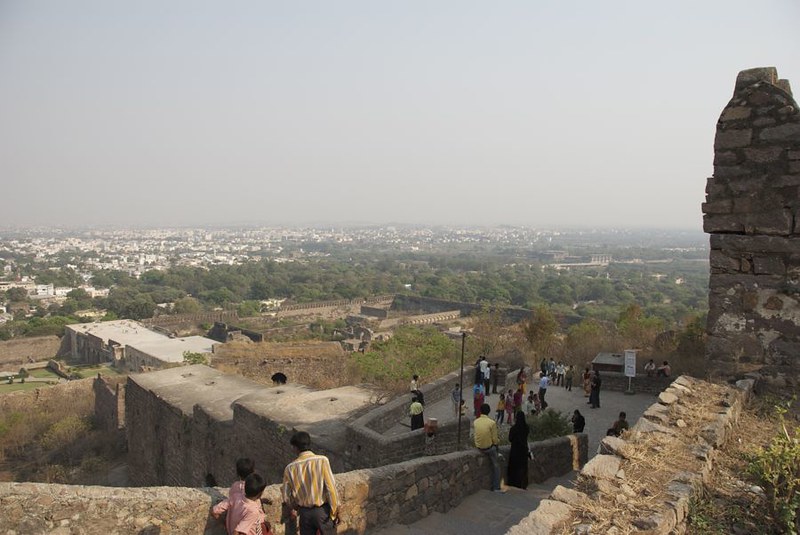
When the Sultan came to know of this Ramadasu was dismissed from his job for misusing the public evenues and was imprisoned in the Golconda Fort with orders that he be released only after the exchequer received all the taxes in full. Unable to withstand his miseries, Ramadas implores Rama to relieve him through many emotional songs popular from the stanzas of 'Dasaradhi Sathakam ' and 'Keertanas' Bhakta Ramadasa. After 11–12 years of imprisonment, it is said that Lord Rama decided that his devotee's suffering had reached its pre-ordained ending (because of a certain transgression his soul had committed in a previous birth). Rama and Lakshmana, disguised as two young warriors, entered the bed-chambers of the Sultan Tana Shah in the middle of the night. They give the king the money spent in gold coins imprinted with Rama's seal. The king was bewildered at the presence of these charming but strange youngsters in his inner quarters. They demanded, and obtained on the spot, a written receipt for the money. The receipt was shown to the jailer who released Gopanna the same night. The next day, both Gopanna and the Sultan realized what had happened. Gopanna did not care much for his release but was inconsolable at not seeing his Lord even with all his devotion while the Lord visited the Sultan. The Lord then appeared to Gopanna in a dream, explained the real reasons for his actions, and promised him salvation at the end of his natural life. The king was convinced that what had happened was a miracle of Lord Sri Rama. So he returned the entire money to the Bhadracalam temple. Since then, it has been the royal custom of the Hyderabad State (now part of Andhra Pradesh State) to send gifts to the temple on the occasion of Sree Rama Navami celebrations every year.